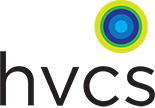This one day introductory training will prepare non-physician health and human services providers to address HIV, sexually transmitted infections (STIs) and viral hepatitis in an integrated, client-centered manner. The training will review the similarities and differences in transmission, screening, available treatments and needed support services for each of the diseases. The training will emphasize the connection between these diseases and the skills needed to effectively interact with clients whose sexual or substance using behaviors place them at risk for HIV, STIs and viral hepatitis.
As a result of this training, participants will be able to:
• Recall data showing the overlap of cases of HIV, STIs and viral hepatitis;
• State the rationale and importance of integration of services related to HIV, STIs and viral hepatitis;
• State the similarities and differences in how HIV, STIs and viral hepatitis are transmitted;
• Deliver an integrated prevention message for HIV, STIs and viral hepatitis;
• Provide clients with basic information about the spectrum of illness, testing and treatment for HIV, STIs and viral hepatitis; and
• Link clients to needed HIV, STI, and viral hepatitis testing, treatment and support services.
Prerequisite: There is no prerequisite for this training. It is intended for individuals who have not had prior training in HIV, STIs or viral hepatitis.
Audience: This introductory training is for non-physician health and human services providers who will be responsible for delivering prevention, care or support services related to HIV, STIs and viral hepatitis.

